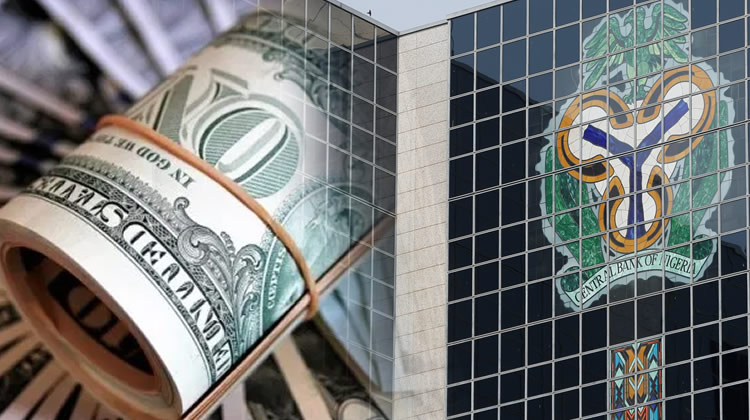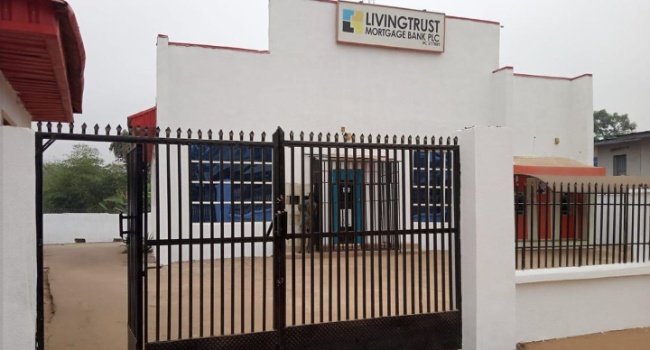CBN’s Economic Report Highlights Naira’s Decline
The Central Bank of Nigeria (CBN) has released its economic report for the first quarter of 2024, revealing a significant decline in the naira’s value against the US dollar.
According to the CBN, the average exchange rate of the naira at the Nigerian Foreign Exchange Market (NFEM), fell by 35.53% to N1,304.72 per US dollar, compared to N841.15 in the fourth quarter of 2023.
Join our WhatsApp ChannelThe report also highlighted that, on a day-to-day basis, the naira experienced fluctuations at the Nigerian Autonomous Foreign Exchange Market (NAFEM).
For instance, the naira appreciated by 3.12% on Wednesday, with the dollar quoted at N1,543.84, down from N1,592.06 on Tuesday.
Increased Forex Inflow and Trading Activities
Despite the naira’s decline, the CBN reported an increase in foreign exchange inflows in the Nigerian economy.
The total foreign exchange inflow rose by 25.69% to $22.26 billion in the first quarter of 2024, up from $17.71 billion in the fourth quarter of 2023.
According to the CBN, this inflow included US$8.09 billion through the Bank, a significant increase from the US$5.01 billion recorded in the previous quarter.
Additionally, the CBN noted a rise in autonomous forex inflows, which grew to $14.17 billion from $12.70 billion in the fourth quarter of 2023.
These inflows are crucial for balancing payments, supporting imports, and stabilising the naira, as explained by a CBN official who wished to remain anonymous.
READ ALSO: Business Owners’ Economic Conditions To Improve By 7.6 Points In August, Says CBN
“The increased foreign exchange inflow is a positive sign, but the depreciation of the naira indicates that we still have challenges to address in our foreign exchange market,” the official stated.
Foreign Exchange Outflows and External Reserves
The CBN’s report also revealed that foreign exchange outflows rose significantly in the first quarter of 2024.
Outflows through the economy increased by 63.28% to US$10.76 billion, compared to US$6.59 billion in the fourth quarter of 2023.
Outflows through the CBN alone surged by 80.47% to $8.93 billion from $4.95 billion in the previous quarter.
Despite the increased outflows, net foreign exchange inflows into the economy showed a modest rise of 3.42%, amounting to $11.50 billion.
However, the CBN reported a net outflow of $0.85 billion through the Bank, contrasting with the net inflow of US$0.06 billion in the preceding quarter.
Impact on Nigeria’s Economy and External Reserves
The CBN’s report highlighted the ongoing pressure on Nigeria’s external reserves, which stood at $32.29 billion at the end of March 2024, down from $33.22 billion in December 2023.
Despite this decrease, the reserves were sufficient to cover 7.1 months of imports for goods and services or 10.1 months for goods alone.
As of August 20, 2024, Nigeria’s external reserves slightly increased to $36.46 billion, as per the latest data from the CBN.
These reserves are critical for maintaining the stability of the naira and ensuring the country’s ability to meet its international financial obligations.
Outlook for the Naira and Forex Market
The CBN’s report underscores the volatility in Nigeria’s foreign exchange market, driven by both internal and external factors.
Analysts suggest that while the increase in foreign exchange inflows is encouraging, the naira’s depreciation points to underlying issues that need to be addressed.
“The rise in forex inflows is beneficial, but we must focus on reducing outflows and stabilising the naira to achieve long-term economic stability,” said Dr. Adewale Adebayo, an economist based in Lagos.
Finally, the CBN’s Q1 2024 report paints a complex picture of Nigeria’s economy, where increased foreign exchange inflows coexist with declining naira.
The coming months will be crucial in determining whether these trends can be reversed or if further measures will be needed to stabilize the country’s foreign exchange market.
Emmanuel Ochayi is a journalist. He is a graduate of the University of Lagos, School of first choice and the nations pride. Emmanuel is keen on exploring writing angles in different areas, including Business, climate change, politics, Education, and others.
- Emmanuel Ochayihttps://www.primebusiness.africa/author/ochayi/
- Emmanuel Ochayihttps://www.primebusiness.africa/author/ochayi/
- Emmanuel Ochayihttps://www.primebusiness.africa/author/ochayi/
- Emmanuel Ochayihttps://www.primebusiness.africa/author/ochayi/



















Follow Us